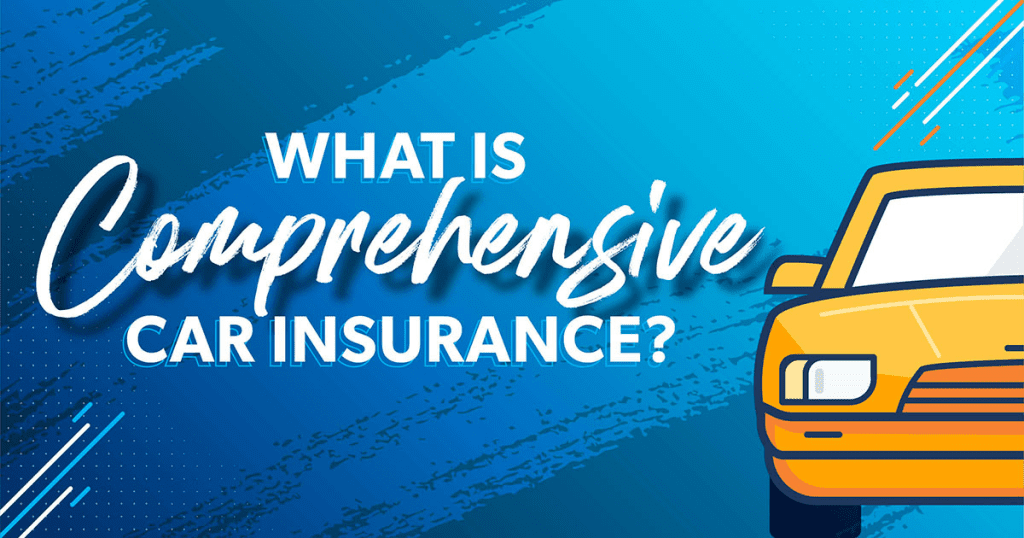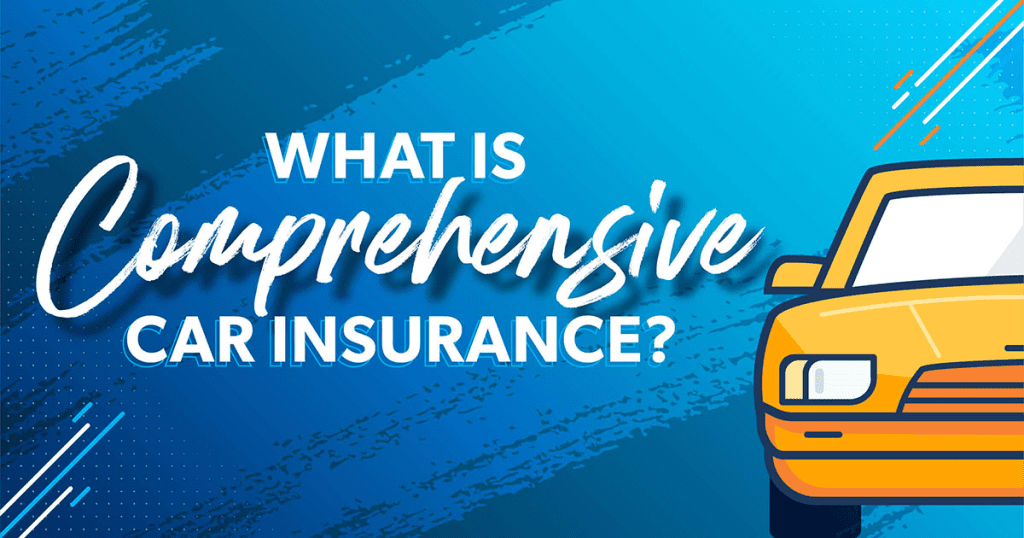In today’s fast-paced world, owning a vehicle isn’t just a convenience but often a necessity. Whether for commuting to work, running errands, or embarking on road trips, our cars play a crucial role in our daily lives. However, along with the privilege of owning a vehicle comes the responsibility of ensuring its protection against various risks. This is where comprehensive coverage steps in, offering a robust safeguard that goes beyond basic insurance policies. In this article, we delve into the significance of comprehensive coverage for your vehicle, exploring its components, benefits, and why it’s essential in today’s uncertain times.

Understanding Comprehensive Coverage
Comprehensive coverage, often referred to as “comp” or “other than collision” coverage, is a type of auto insurance that provides financial protection against physical damage not caused by a collision. While collision insurance covers damages resulting from a collision with another vehicle or object, comprehensive coverage protects against a broader range of incidents. These typically include:
- Weather-related damage: Such as hail, windstorms, hurricanes, or flooding.
- Natural disasters: Including earthquakes, wildfires, or tornadoes.
- Theft: Coverage for stolen vehicles or parts.
- Vandalism: Damage caused by intentional acts of vandalism.
Additionally, comprehensive coverage may extend to cover damages from falling objects, animal collisions, and in some policies, even incidents like riots or civil disturbances. This comprehensive nature ensures that your vehicle is protected from a wide array of risks beyond what basic insurance typically covers.
The Benefits of Comprehensive Coverage
1. Protection Against Natural Disasters and Weather Events
Natural disasters can wreak havoc on vehicles, causing substantial damage that could be financially devastating. From floods that damage engines to hailstorms that dent and crack windshields, comprehensive coverage ensures that repairs or replacements are covered, minimizing out-of-pocket expenses for the policyholder.
2. Coverage Against Theft and Vandalism
Car theft and vandalism are unfortunate realities in many urban and suburban areas. Comprehensive coverage not only covers the theft of your vehicle but also any damages caused by vandals, such as slashed tires or broken windows. This protection can be invaluable, especially for vehicles parked in public areas or overnight in less secure locations.
3. Peace of Mind
One of the most significant benefits of comprehensive coverage is the peace of mind it offers. Knowing that your vehicle is protected against a wide range of risks allows you to drive with confidence and focus on enjoying the journey rather than worrying about potential damages.
4. Lender Requirements
If you finance or lease your vehicle, comprehensive coverage is often required by lenders or lessors. This requirement ensures that their investment (the vehicle) is adequately protected against damage or loss, reducing their financial risk.
5. Resale Value Protection
Comprehensive coverage can also help maintain the resale value of your vehicle. By repairing damages caused by incidents like hail or vandalism promptly, you prevent depreciation that could occur if the damage were left unrepaired.
When Is Comprehensive Coverage Necessary?
While comprehensive coverage offers substantial benefits, it may not be necessary for every vehicle owner. Several factors should be considered when determining if comprehensive coverage is right for you:
- Vehicle Value: Newer or high-value vehicles may benefit more from comprehensive coverage due to the cost of repairs or replacements.
- Geographic Location: If you live in an area prone to severe weather, natural disasters, or high rates of vehicle theft, comprehensive coverage becomes more crucial.
- Personal Budget: Consider your financial situation and ability to cover potential damages out-of-pocket versus paying for comprehensive coverage.
- Lender Requirements: If you have a car loan or lease, your lender may require comprehensive coverage as part of the financing agreement.
Cost Considerations
The cost of comprehensive coverage varies depending on several factors, including the deductible amount, the age and value of your vehicle, your location, driving history, and insurance provider. Generally, higher deductibles result in lower premiums, but this means you’ll pay more out-of-pocket before your insurance coverage kicks in.
Comparing quotes from different insurance companies can help you find the best balance between coverage and cost. Some insurers offer discounts for bundling policies, maintaining a clean driving record, or installing anti-theft devices in your vehicle.
Conclusion
In conclusion, comprehensive coverage is a valuable component of auto insurance that provides essential protection against a wide range of risks beyond basic collision coverage. From natural disasters and weather-related damages to theft and vandalism, comprehensive coverage ensures that your vehicle is safeguarded against unforeseen events that could otherwise result in significant financial losses. While not mandatory in all cases, comprehensive coverage offers peace of mind and financial security, making it a prudent choice for many vehicle owners. By understanding its benefits, evaluating your individual needs, and comparing insurance options, you can make an informed decision to protect your vehicle and your peace of mind on the road.
